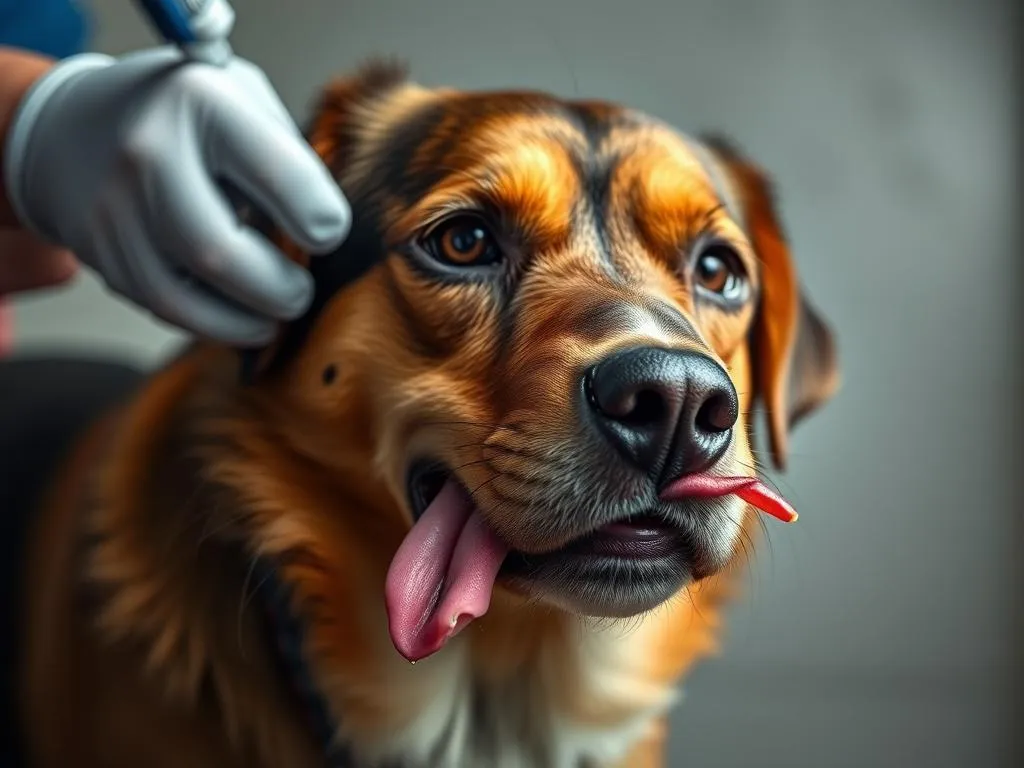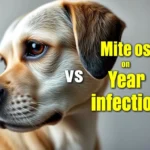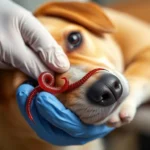
Introduction
When it comes to our furry friends, we often find ourselves facing unexpected and alarming situations. One of those scenarios is when a dog eats maggots. While this might seem unusual, it’s a behavior that can happen due to a dog’s natural scavenging instincts. In this article, we will explore the implications of a dog consuming maggots, the potential health risks involved, and the recommended actions every pet owner should take.
Importance of Seeking Veterinary Advice
If your dog has eaten maggots, it’s crucial to consult a veterinarian. While dogs may occasionally consume things that seem unpalatable to us, there are significant health risks associated with ingesting maggots. Only a qualified professional can provide the appropriate guidance and treatment necessary to ensure your pet’s well-being.
Understanding Maggots
What Are Maggots?
Maggots are the larval stage of flies, particularly the common housefly. They are small, white, and worm-like creatures that thrive in decaying organic matter, such as garbage, animal waste, or dead animals. The lifecycle of maggots begins when a female fly lays eggs, which hatch into larvae within a day. These larvae feed on the decomposing material, growing rapidly before eventually pupating into adult flies.
Why Do Dogs Eat Maggots?
Dogs are natural scavengers, and their instinctual behavior drives them to explore and consume various things they encounter. The strong odor associated with decaying matter can attract dogs, making maggots appealing to them. Additionally, the texture and taste of maggots may pique their interest, leading them to eat them without hesitation.
Potential Health Risks
Immediate Concerns
If your dog has ingested maggots, the immediate concern is the potential for gastrointestinal upset. Dogs may experience symptoms such as vomiting, diarrhea, or abdominal discomfort shortly after consumption. These symptoms can vary in severity and may require veterinary attention.
Long-term Health Risks
Ingesting maggots can lead to several long-term health risks. One of the primary concerns is exposure to parasites, such as intestinal worms, which maggots could carry. Additionally, there is the potential for food poisoning or bacterial infections, particularly if the maggots were feeding on contaminated material. Keeping an eye on your dog’s health is crucial in this situation.
What to Do If Your Dog Eats Maggots
Observe Symptoms
After your dog has eaten maggots, it’s essential to observe their behavior for any concerning symptoms. Some signs to look out for include:
- Vomiting
- Diarrhea
- Lethargy
- Loss of appetite
- Abdominal pain or bloating
If your dog exhibits any of these symptoms, especially if they persist, it’s time to contact your veterinarian.
Contacting the Vet
When you call the vet, be prepared to provide detailed information about the incident. Here are some questions you might consider asking:
- How many maggots did my dog eat?
- What type of environment were the maggots in?
- What symptoms should I monitor for?
- Is there a need for immediate action or treatment?
Providing as much information as possible will help your vet assess the situation and recommend the best course of action.
Home Care Tips
While waiting for veterinary advice, there are some first aid measures you can take:
- Monitor your dog’s behavior and symptoms closely.
- Ensure they have access to fresh water to stay hydrated.
- Avoid feeding them any food until you consult the vet, as this can help prevent further gastrointestinal upset.
Veterinary Treatments and Care
Diagnostics
When you take your dog to the vet, they may perform several diagnostic tests to assess your pet’s health. Common tests include:
- Fecal tests to check for parasites.
- Blood work to assess overall health and detect any infections.
A thorough examination will help your vet determine the best approach to treatment.
Treatment Options
Depending on the findings from the diagnostic tests, your vet may recommend several treatment options, including:
- Deworming medications if your dog is found to have intestinal parasites.
- Antibiotics if there is a risk of bacterial infection.
- Supportive care, such as hydration therapy, if your dog is experiencing severe gastrointestinal symptoms.
The expected outcomes will depend on your dog’s overall health and the severity of any symptoms observed.
Preventative Measures
Keeping Your Dog Safe
To prevent your dog from eating maggots in the future, consider implementing these strategies:
- Supervise your dog during outdoor playtime, especially around areas with garbage or decomposing materials.
- Training your dog to refrain from scavenging can be beneficial. Commands like “leave it” can be effective in redirecting their attention.
- Regularly clean your environment to minimize the chances of attracting flies and, consequently, maggots.
Regular Vet Check-ups
Regular veterinary visits play a critical role in maintaining your dog’s overall health. Discuss your dog’s dietary needs and any concerning behaviors with your vet. This proactive approach can help identify potential issues before they become serious problems.
Conclusion
In conclusion, while the thought of a dog eating maggots can be unsettling, it is essential to remain calm and take appropriate action. Observing your pet’s behavior, contacting a veterinarian promptly, and following recommended care practices can significantly mitigate health risks associated with this incident. Staying informed and proactive about your pet’s health is key to ensuring their well-being.
FAQs
Can dogs eat maggots without any harm?
While some dogs may not experience immediate harm after consuming maggots, the risks of gastrointestinal upset, parasitic infections, and bacterial illnesses make it important to seek veterinary advice.
What are the signs of illness after a dog eats maggots?
Signs of illness may include vomiting, diarrhea, lethargy, loss of appetite, and abdominal discomfort. If any of these symptoms persist, consult your veterinarian.
How can I prevent my dog from eating maggots in the future?
Preventative measures include supervising your dog outdoors, training them to avoid scavenging, and maintaining a clean environment to deter flies and maggots.
Should I induce vomiting if my dog eats maggots?
Inducing vomiting is not generally recommended without veterinary guidance. Consult your veterinarian for the best course of action based on your dog’s specific situation.
References
- [Veterinary Health Articles]
- [Pet Care Guidelines]
- [Animal Behavior Insights]









